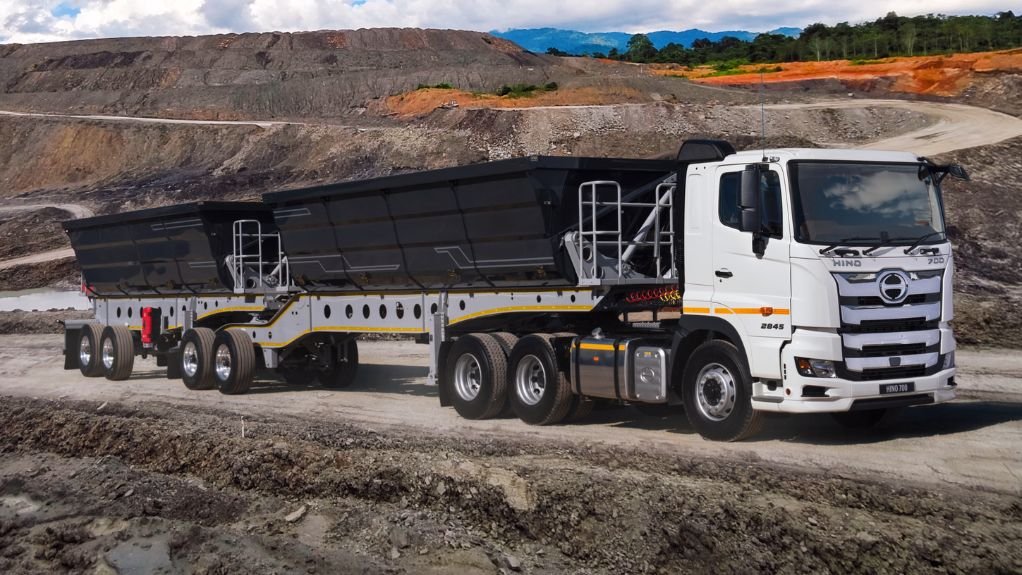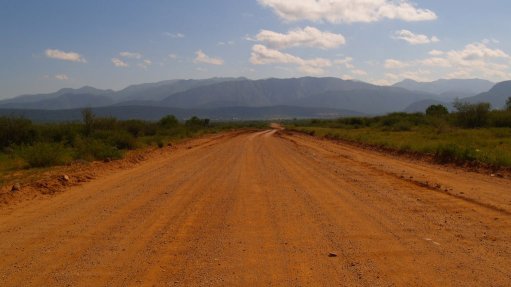Sector shows resilience despite freight challenges


MARKET SHARE Hino 700 has expanded its market share in the extra heavy category by 0.5%
Photo by AI-Generated
South Africa’s commercial vehicle industry continues to sustain vital transport capacity and logistics service amid sluggish economic growth, port congestion and freight load challenges, playing a “crucial role in supporting a hoped-for economic recovery,” says heavy commercial vehicles manufacturer Hino South Africa sales and marketing VP Anton Falck.
The 2025 truck market is tracking almost on par with 2024 on a year-to-date basis, but that performance differs sharply across segments. “The medium commercial vehicle segment has grown by 8.1%, reflecting steady replacement demand and resilience in regional distribution. The heavy commercial vehicle segment is even stronger, up by 26.5% year-on-year, supported by fleet renewals and logistics sector activity.”
However, he adds that the extra heavy commercial vehicle segment, comprising more than half of all truck sales in South Africa, has declined by 12.3%. He attributes this to high stock levels in the used-truck market.
“Many new truck traders are carrying surplus inventory from previous strong sales years, and those units are now returning from their lease cycles,” he says.
Rising operating and financing costs have further strained smaller operators, limiting new purchases.
While several brands face difficulty moving used stock, Falck says Hino’s position remains stable: “Our dealers’ used-truck inventory is low, even negligible in many cases. This speaks to continued demand for Hino’s newer models and the reliability of our product range.”
The Hino 700 truck has expanded its market share in the extra-heavy category by 0.5%, with the 700 range offering the performance, fuel efficiency and durability required for regional operations in tough conditions, he adds.
Even amid steady demand, the sector faces significant challenges, including a shortage of skilled technical staff: “The complexity of modern trucks means we need diesel technicians, auto electricians and diagnostic specialists with advanced skills.”
However, many experienced professionals are retiring or emigrating, and training for new entrants is not keeping pace. The company is addressing this through its Hino Learnership Programme and technician reward initiatives aimed at improving retention and service quality.
Alongside workforce development, digitalisation is changing the way fleets operate, with Falck citing a “strong appetite” for digital fleet management as operators look to lower costs and reduce risk.
“Hino-Connect, which has been recently updated, turns Hino trucks into intelligent, data-enabled vehicles. It’s more than a tracking tool. It helps reduce downtime, enhance driver safety and improve fleet performance.”
Vehicle safety is another priority area, particularly given the long distances, variable road conditions and accident risks that define the local operating environment. The latest Hino 700 models come standard with driver-assistance features such as collision avoidance, lane departure warning, driver monitoring, adaptive cruise control and advanced braking systems.
“These technologies form part of our CASE approach: Connected, Autonomous, Shared and Electric, aimed at protecting drivers and assets while improving uptime,” Falck explains.
Meanwhile, the global transition to low-emission vehicles presents opportunities and constraints for local manufacturers.
“Most diesel available in South Africa . . . is 50 ppm, which supports Euro IV standards. The widespread move to 10 ppm fuel needed for Euro VI has been delayed to around 2027. That means Euro VI technology can be used only in targeted applications where dedicated fuel supply exists,” he explains.
Hino Motors is pursuing multiple energy solutions to match different regional needs. In South Africa, it is trialling more than 30 Hino 300 diesel-electric hybrid trucks with customers, with fuel savings of up to 20%.
“We also introduced the Hino Dutro Z EV, designed for urban last-mile delivery,” he adds.
Meanwhile, in Japan, Hino’s hydrogen fuel cell heavy trucks, based on the Hino 700 platform, entered mass production this year; while they are not yet planned for distribution in South Africa, the technology will play a role here as infrastructure improves.
Falck believes that the combination of infrastructure reform and investment in freight corridors will help to drive long-term demand for commercial vehicles.
“If we strengthen skills and logistics capacity while preparing for cleaner technologies, the sector can continue to underpin economic recovery. Trucks remain the backbone of trade in South Africa and ensuring their evolution is essential for the country’s growth,” he concludes.
Article Enquiry
Email Article
Save Article
Feedback
To advertise email advertising@creamermedia.co.za or click here
Press Office
Announcements
What's On
Subscribe to improve your user experience...
Option 1 (equivalent of R125 a month):
Receive a weekly copy of Creamer Media's Engineering News & Mining Weekly magazine
(print copy for those in South Africa and e-magazine for those outside of South Africa)
Receive daily email newsletters
Access to full search results
Access archive of magazine back copies
Access to Projects in Progress
Access to ONE Research Report of your choice in PDF format
Option 2 (equivalent of R375 a month):
All benefits from Option 1
PLUS
Access to Creamer Media's Research Channel Africa for ALL Research Reports, in PDF format, on various industrial and mining sectors
including Electricity; Water; Energy Transition; Hydrogen; Roads, Rail and Ports; Coal; Gold; Platinum; Battery Metals; etc.
Already a subscriber?
Forgotten your password?
Receive weekly copy of Creamer Media's Engineering News & Mining Weekly magazine (print copy for those in South Africa and e-magazine for those outside of South Africa)
➕
Recieve daily email newsletters
➕
Access to full search results
➕
Access archive of magazine back copies
➕
Access to Projects in Progress
➕
Access to ONE Research Report of your choice in PDF format
RESEARCH CHANNEL AFRICA
R4500 (equivalent of R375 a month)
SUBSCRIBEAll benefits from Option 1
➕
Access to Creamer Media's Research Channel Africa for ALL Research Reports on various industrial and mining sectors, in PDF format, including on:
Electricity
➕
Water
➕
Energy Transition
➕
Hydrogen
➕
Roads, Rail and Ports
➕
Coal
➕
Gold
➕
Platinum
➕
Battery Metals
➕
etc.
Receive all benefits from Option 1 or Option 2 delivered to numerous people at your company
➕
Multiple User names and Passwords for simultaneous log-ins
➕
Intranet integration access to all in your organisation



















